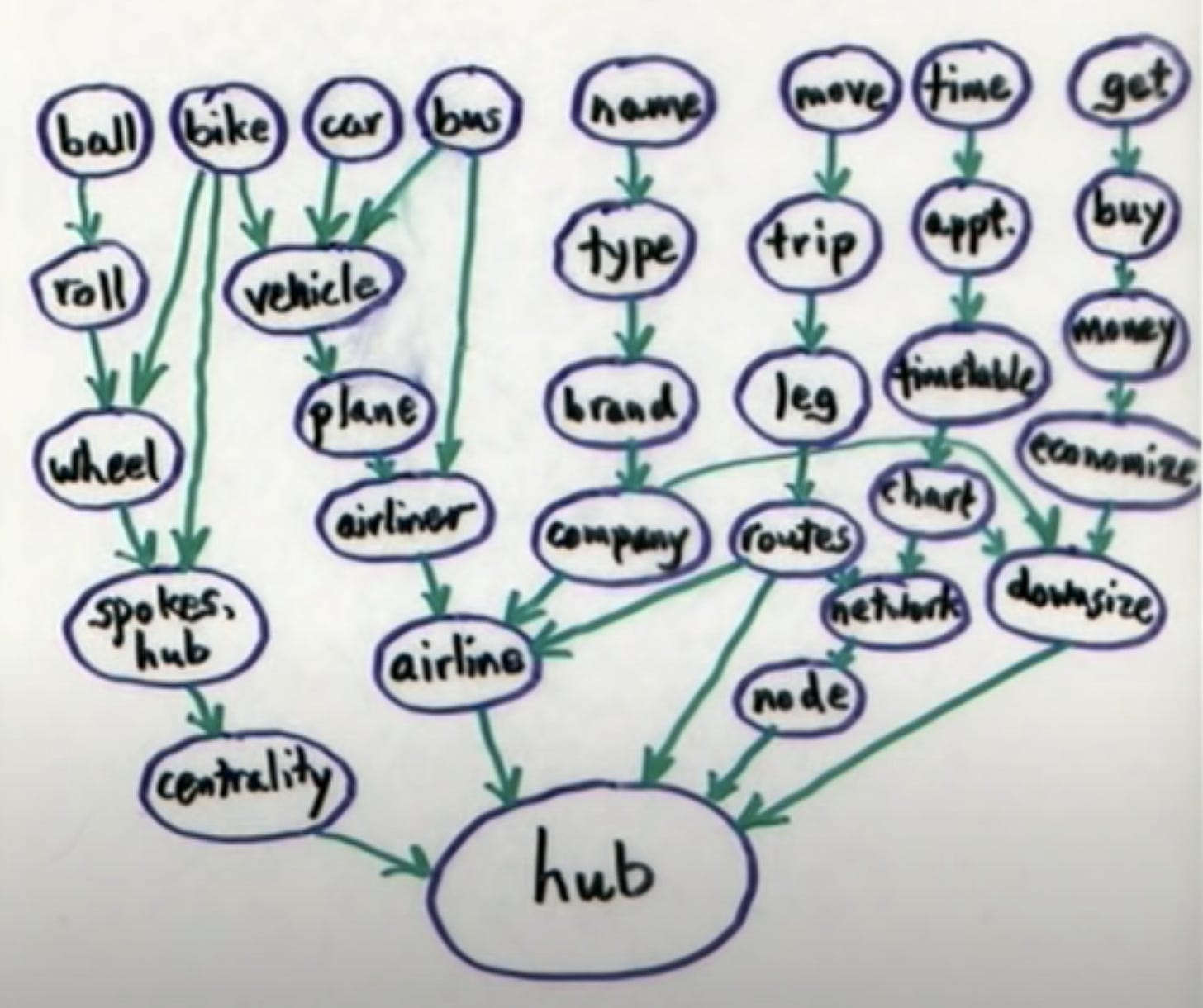Why does life feel faster with every year
As we start to see life’s patterns at progressively higher levels, the lower level of perception become more and more invisible.

In 2005, Douglas Hofstadter gave a lecture called Analogy as the Core of Cognition where he makes the ambitious claim that analogies are the basis of our thinking:
- every concept we have is essentially a tightly packaged bundle of analogies
- all we do when we think is to move fluidly from concept to concept
- concept-to-concept leaps are themselves made via analogical connection
Over the course of our lives, we build up a giant repertoire of concepts in our minds. These concepts are built up via a process called chunking, where we take small concepts and put them together into bigger and bigger ones.
Chunking makes it easier and more efficient to represent information. For example, it’s hard to remember the 10 digits of a phone number in isolation, but we’ve adapted to break it up into three chunks to remember it more easily.

Similarly, we build up high-level concepts that encompass many smaller ones. The concept of a hub spans smaller concepts such as airplanes, cities, networks, and so on.

From here, Hofstadter speculates that chunking may relate to why people can’t remember their first few years of life. Babies’ concepts are simply too small and so they only perceive a low level of abstraction, much less remember it.
“It is as if babies were looking at life through a randomly drifting keyhole, and at each moment could make out only the most local aspects of scenes before them. It would be hopeless to try to figure out how a whole room is organized, for instance, given just a keyhole view”
The chunks grow in size and number as people grow older. As a result, it’s possible to store more complex experiences and events in memory. Whereas babies might have a hard time integrating over the span of minutes, adults can easily weave together experiences that unfold over days or weeks.
In other words, we can process larger coherent stretches of life in single mental chunks as we grow older. As we start to see life’s patterns at progressively higher levels, the lower level of perception become more and more invisible.
“Boy, this year sure went by fast!” is so tempting to say because each year is perceived in terms of chunks at a higher, grander, larger level than any year preceding it, and therefore each passing year contains fewer top-level chunks than any year preceding it, and so, psychologically, each year seems sparser than any of its predecessors.
The relentless process of mental chunking makes life seem to pass faster as you age.
From this perspective, it’s clear why mindfulness seems to help so many people. If you’re trying to stretch out a moment, try being more attentive and really appreciating the low-level details of life for a change.
If you’d like to read the rest of Hofstadter’s thoughts, here’s the link to the full paper.
Friday Brainstorm Newsletter
For more, join 300+ curious people subscribed to the Friday Brainstorm newsletter. It’s one email a month with the most interesting ideas I've found related to science and health.